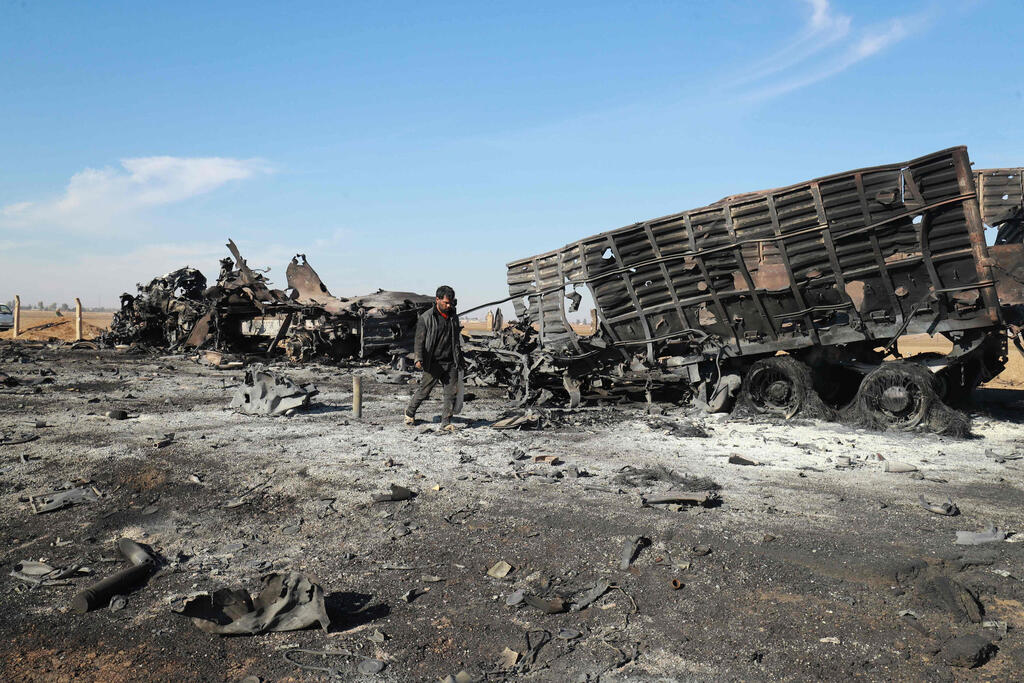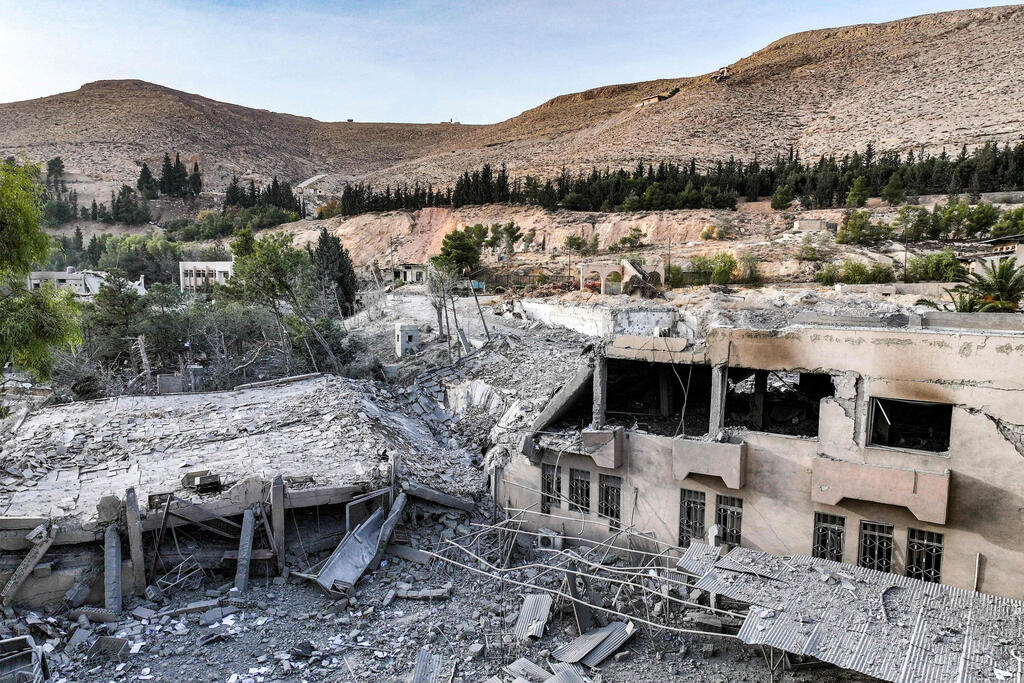Getting your Trinity Audio player ready...
Reports continue to emerge from Syria showcasing the extensive destruction of former President Bashar al-Assad’s military infrastructure, targeted by Israel. According to IDF estimates, the campaign has wiped out approximately 70%–80% of Syria’s strategic capabilities. Over 350 airstrikes were carried out, hitting around 320 critical targets.
One of the most significant strikes occurred at Kamishli Airport, located near the Turkish border, over 400 miles from Israel’s northernmost point. Additionally, new images from Barzeh, near Damascus, reveal near-total destruction of the infamous Syrian Scientific Studies and Research Center, a facility linked to Assad’s chemical weapons program. This site, suspected of being used by Iran for missile development, has been repeatedly targeted by Israel in recent years.
Meanwhile, Hay'at Tahrir al-Sham, the leading Syrian rebel faction, has remained silent about the Israeli strikes. The group's focus appears to be on forming a provisional government to consolidate control over Syria following the rapid fall of Assad’s regime. NBC News reports that the Biden administration is considering removing Hay'at Tahrir al-Sham from the U.S. list of terrorist organizations, a move that would also lift the $10 million bounty on the group’s leader, Abu Mohammad al-Julani.
Residents of Damascus describe the recent days as a surreal mix of terror and relief. “Gunmen are firing into the air in celebration, shaking the streets, while Israeli airstrikes echo in the distance. It feels like a nightmare, but then you remind yourself it’s also a dream come true – because Assad is gone,” Moutaz Hussein, a local, told The Wall Street Journal. Another resident, Hani Qousbatoi, told The Washington Post: “The fear is starting to fade, but now the only concern is the Israeli strikes.”
While Assad and his family have reportedly sought asylum in Moscow, Russian Deputy Foreign Minister Sergei Ryabkov confirmed in an NBC interview that Russia facilitated their "secure relocation." When asked if Assad would face trial, Ryabkov deflected, saying, "Russia is not a party to the International Criminal Court."
Arab media has closely followed the developments in Syria, particularly Israel’s unprecedented military activity. Lebanon’s Al-Akhbar, known for its ties to Hezbollah, headlined the situation as "The Struggle of the 'Day After.'" The outlet noted that since Assad’s fall, Israel has launched its most extensive strikes on Syria since 1973, combining airstrikes with limited ground operations. Qatar’s Al-Arabi al-Jadid newspaper accused Israel of turning Syria into “fair game,” highlighting its strikes on military infrastructure and defensive systems, as well as alleged Israeli actions in the Golan Heights, which have drawn official condemnations from several Arab nations.
Syrian research building after IAF bombings
UN Special Envoy to Syria Geir Pedersen called for Israel to halt its strikes, accusing it of exploiting the situation. “This must stop. Syrian factions are working to establish a stable government, and international actors should not derail this process,” he said.
The operation primarily targeted Iranian entrenchment in Syria and the transfer of weapons to Hezbollah, while also aiming to create a secure buffer zone along Israel’s northern border. The IDF has emphasized the campaign is an ongoing effort requiring constant monitoring and precise intelligence. Military officials stress that Israel is not involved in Syria’s internal conflict and is operating solely to protect its own security and the residents of the Golan Heights. They also noted that, despite their activity in the buffer zone, Israeli forces are avoiding direct engagement with local Syrian populations.
Israel began its operation even before Assad’s fall was certain. In the 24 hours leading up to the operation, the IDF expanded its air superiority, enabling hundreds of strikes on key targets. These included aircraft, coastal and surface-to-air missiles, underground facilities, weapons depots, Scud missiles, cruise missiles, radar systems, tanks, and advanced Syrian naval vessels equipped with coastal missiles. Intelligence for these strikes had been gathered over years.
Rebels take control of 70% of Syria, but fighting continues
The Syrian Observatory for Human Rights reported that rebel forces now control 70% of Syrian territory. However, fighting persists in several regions. Hassan Abd al-Rani, a senior rebel commander, announced that opposition forces have fully captured Deir ez-Zor, a city in eastern Syria that had been a stronghold for pro-Iranian militias. The city was heavily bombed by U.S.-led coalition forces during the war, and coalition bases in the region were also targeted in retaliatory strikes.
In another hotspot, the northern city of Manbij in Aleppo Province, clashes between the Syrian Democratic Forces (SDF) – comprised of Kurdish rebels and financed by the United States – and opposition forces reportedly led to a ceasefire agreement. SDF Commander Mazloum Abdi stated that his forces, with U.S. backing, reached a truce with Turkish-supported Syrian opposition groups to ensure “safety and security for the people.” Abdi added, “Our goal is a nationwide ceasefire and a political process for Syria’s future.”
Get the Ynetnews app on your smartphone: Google Play: https://bit.ly/4eJ37pE | Apple App Store: https://bit.ly/3ZL7iNv
Meanwhile, Syrian rebels issued a call for all military and civilian factions in the coastal region to halt celebratory gunfire. They also announced a ban on the seizure of public property and the occupation of government institutions or military outposts.
The situation in Syria remains fluid, with significant challenges ahead despite the rebels’ territorial gains. As the dust settles from Assad’s downfall, the focus now shifts to rebuilding and stabilizing a fractured nation.








